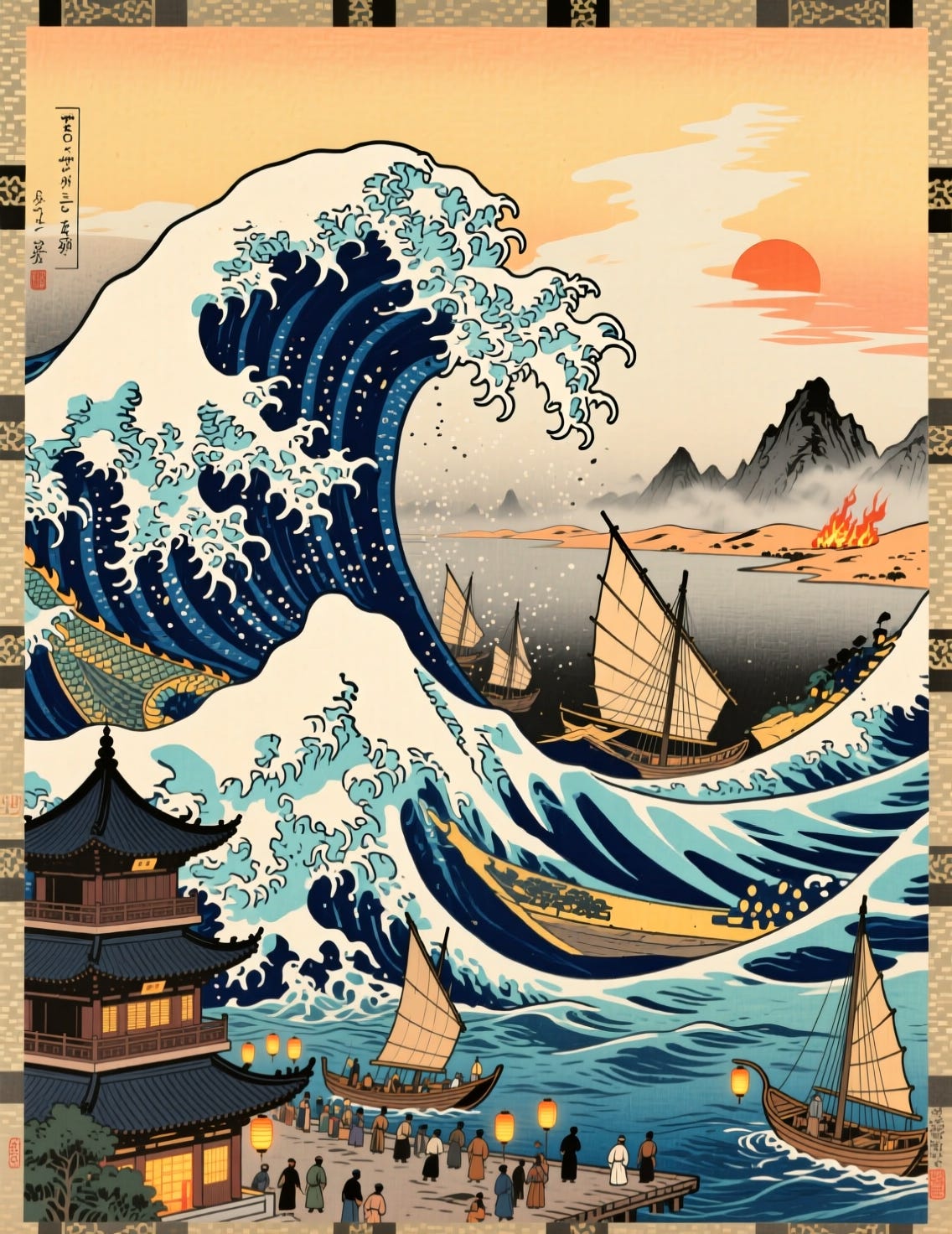Sirafi Blues
A Book Review
Professor Donald Sassoon is vastly more learned than I could ever hope to be. Via the page, he once told me of Ivan Turgenev’s Dym. From one narrator, I learnt — via another narrator — that in the 19th century, the Russians believed that while contemporary Englishmen discussed technological innovations and the Germans spoke of their dreams of unification. The French boasted of their amours, the Russians...well, the Russians spoke of the significance and future of Russia. Most of all, they obsessed over the rotten, wily, inescapable Occident, and the slavish, prickly pride they displayed towards the West.
I can justly report that nothing has changed since Gospodin Turgenev put his quill to inky paper. The Russians were the first of many to be afflicted by that ennui characteristic of peripheral Third World Elites. They all tilt their lances at some shadowy eminence termed the West; yet, they cannot imagine a world without their imagined nemesis.
Books are a portal to alien realms. Accounts of China and India by Abu Zayd Al-Sirafi is a window to a strange reality. After all, we are more than five centuries removed from Columbus and Da Gama’s epochal voyages. As ably translated by Tim Mackintosh-Smith (al-Britisher), Abu Zayd’s words beckon us to a time when Western Europe was peripheral. In the ninth and tenth centuries, the West did not yet haunt waking dreams. You only need to read Abu Zayd to see how much and how little change.
In 879, forces of the rebel, Huang Chao, burst through the walls of Guangzhou and massacred its cosmopolitan population. They had no Hong Kong to which to flee. Huang Chao’s rebellion, not the more famous An Lushan revolt, tolled the death knell for the glorious Tang era. Abu Zayd’s book is, in a manner of speaking, an obituary for a foregone golden age when things simply worked!
Rewind a bit. It’s 750. The Umayyads are on their last legs; partisans of the House of Abbas preach sedition. Head up the Zagros range, ride east across Persia and Transoxiana, climb the Pamirs, skirt the burning sands of the Taklamakan, then debouch through the Hexi Corridor, and Chang’an awaits. Many old fortunes in a young America were made running the China trade. Many merchants in the emerging golden age of the Abbasids did the same. The so-called Silk Road gets all the press, but it was ever on the oceans that the real money was made.
Today, automated, deep ports link gigantic container ships. Then, specialised ships linked regionally prominent ports and cargo was passed from point to point, trucked and bartered along the way while the merchant’s capital compounded. Ships did not make straight voyages, and rare was the merchant who sailed from Silla (Korea) to Siraf (Iran). Abu Zayd’s book would have been a God-send for the few who did, and, perhaps, for the storyteller making a living off Sinbad narratives.
Accounts of China and India is a compilation of sailors’ tales appraised for accuracy and plausibility by the author. It is primarily concerned with Indians and Chinese. However, East Africans and Indian Ocean islanders make a cameo. The best part of reading these dispatches from a forgotten age is the familiar nuggets. That said, it retains the ability to shock. For example, Abu Zayd’s informants could describe India as a land without Muslims. The only certainty is change.
Inasmuch as this brief book left me with the tangy taste of the distant sea breeze in my mouth, it also ended in the middle of a story I know saw no better days. The Tang would not recover from the Huang Chao rebellion. The Abbasid Golden Age faded away to an age of steppe warfare. The Mongols did not herald a renewed golden age. The Ming era was no phoenix. The Ottomans’ Mediterranean tilt was parochial in comparison — it made no Sinbads. And, of course, Columbus and Da Gama would irrevocably broaden the West’s horizon and, thus, create the Rest as a class.
A careful reading reveals the very seeds of the coming years of disaster. In that, they serve as a warning for the present. If nothing else, recall that good things come to those who do not pause at the pillars of Hercules, but push forward the frontiers of knowledge in the pursuit of honest profit. To want; to know; to have; Carpe Diem, and carpe you this book too. I cannot sing its praises enough, and it’s brief enough to read and reread, instead of some tedious thread promising inevitable victory for the so-called Global South.
One day, I shall visit Siraf and put my feet on the sands from which Abu Zayd witnessed globalisation in motion, free of the deadening hand of would-be monopolists. Until then, this Iraqi bloke on Douyin will suffice.
Lao Wang's Douyin in China - Douyin
It’s also just occurred to me that the TikTokified version of this book would be to subtitle and annotate these vids on YouTube.
Al-Sīrāfī, Abū Zayd. Accounts of China and India. Translated by Tim Mackintosh-Smith. London: New York University Press, 2017.



I haven't read this. It sounds a bit melancholy. Although I suppose that is only in hindsight. How accurate was the Arab understanding of China and India? Did they understand these rebelions and what not.